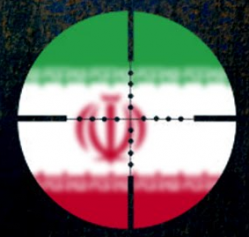Outlandish Iran “Plot” Unleashes Calls for War
October 21, 2011

The alleged Iranian plot against the Saudi U.S. ambassador was remarkable not only for its sheer strangeness, but also for the surprising fanfare with which the Obama administration disclosed it—leading some writers to question the administration’s motives. “The administration's hyping of this strange case fits [an] established pattern,” observes former CIA analyst Paul Pillar. “[I]t is operating in a reelection mode. Being in that mode means being determined to look just as tough on Iran as the next guy.” Moreover, Gareth Porter has identified several potentially false claims used by the administration to support its conclusions, and Ian Williams has discerned in the plot the hallmarks of yet another FBI-instigated terror plot.
Even within the administration, reports Reuters, some officials “are privately expressing disquiet that the outlandish-sounding plan has triggered U.S. calls for stiff new action against Iran.” While generally not openly disputing the facts of the case, some administration skeptics have tentatively concluded that, if anything, the plot suggests weakness and division within Iran’s security agencies, which could make further escalations unnecessary.
This, however, has not been the conclusion of many prominent neoconservatives and right-wing commentators, who have seized upon the development to justify explicit calls for U.S. military action against Iran.
In a press release reposted by Washington Post blogger Jennifer Rubin, Sen. Joseph Lieberman (I-CT) wrote, “It is time for the United States and our allies to make clear to Iran’s leaders that, if they continue on their current outlaw course, they will face more than just further incremental ratcheting up of economic sanctions and diplomatic pressure.” Rubin herself piled on, indicating her impatience with diplomatic approaches to Iran: “Sanctions—ho hum. Diplomatic responses—yawn. The Iranian regime can only be encouraged by such reticence.” She added in a post the following day that President Obama “is not willing to acknowledge that while we haven’t been at war with Iran, Iran is certainly at war with us. … Sanctions and talk. Neither has had an impact. Obama’s weakness is provocative to our enemies and demoralizing to our allies.”
Elsewhere, Max Boot writes at Commentary, “time and again we have failed to grasp the lesson that Iran responds positively to displays of American strength and is emboldened to aggression by evidence of American weakness.” He laments that “there is little chance we will go to war over a plot to kill a Saudi diplomat on our soil,” which he says “is likely to convince the Iranians we really are a paper tiger and will not go to war even if they are on the verge of going nuclear.”
AEI fellow Reuel Marc Gerecht, writing in the Wall Street Journal, was the most explicit. “The White House needs to respond militarily to this outrage,” he said. “If we don't, we are asking for it.” (Cannily, M.J. Rosenberg notes from our Right Web profile that Gerecht had already reached the same conclusion back in 2002, biding President Bush to “[compel] his administration to follow him against Iraq and Iran”—well before the United States had even invaded Iraq!)
If the Obama administration offered up this strange allegation to boost confidence in its security policies, it’s playing a dangerous game that may force its hand later. “By offering up this kind of red meat,” notes Paul Pillar, the administration “risks enabling the meat eaters to push the administration into even more dangerous actions toward Iran.”
—Peter Certo
